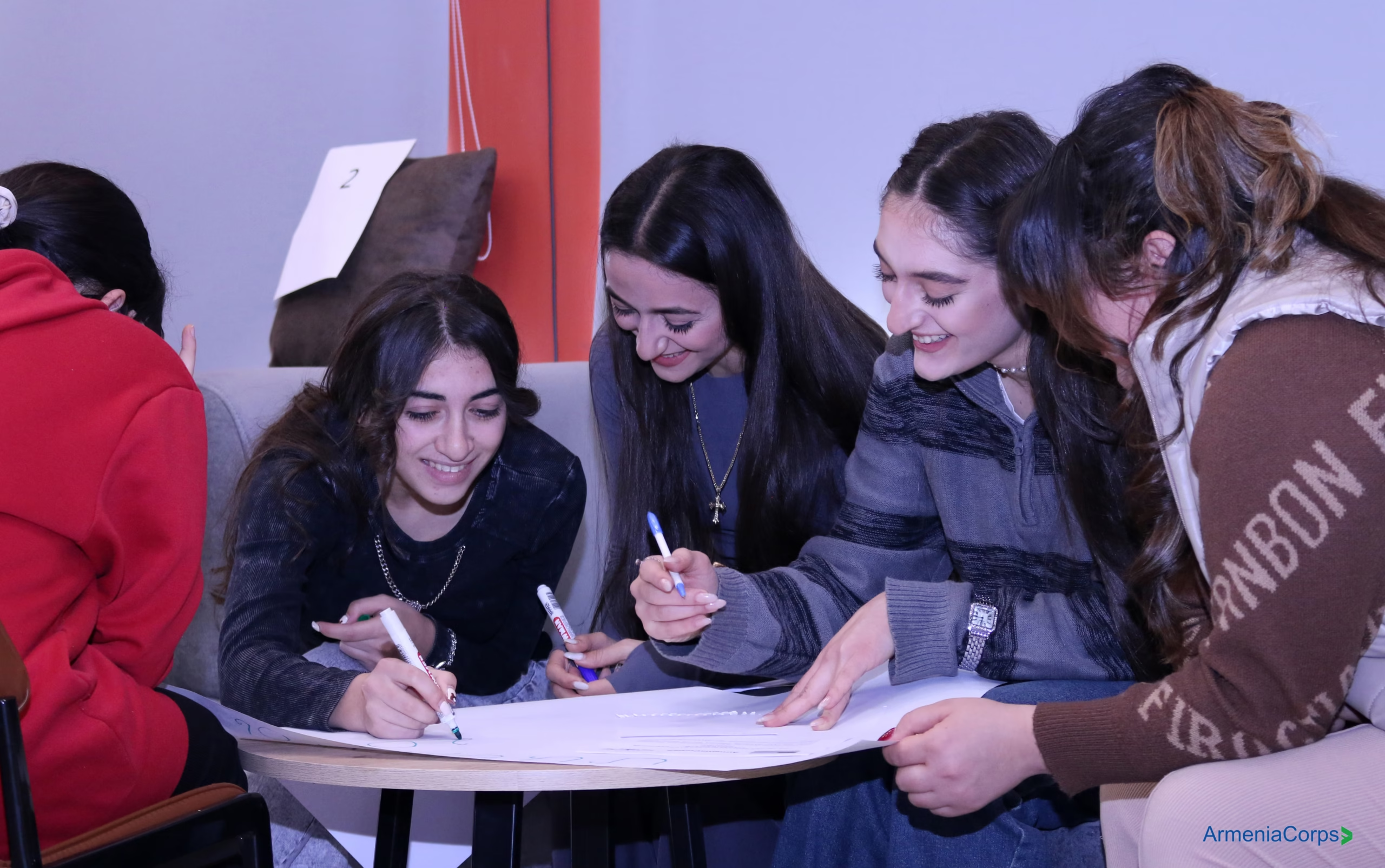

Period: October 2024 – June 2025
Geography: 18 villages and Masis city, Ararat region, Armenia
Co-creators of development: 36 local and displaced youth
Between September 24 and October 4, 2023, a total of 101,848 ethnic Armenians, forcibly displaced by hostilities in Nagorno-Karabakh (NK), sought refuge in the Republic of Armenia. The displaced population was located in various regions across Armenia, with the highest numbers sheltering in Yerevan, Kotayk, and Ararat.
Within the Ararat region, out of the 18,234 NK displaced persons identified, 10,000 found shelter in the Masis community, formed through consolidation in 2021. Comprising 26 villages and a city, with a total population of 92,623, the Masis community has emerged as a pivotal hub for refugee resettlement.
While humanitarian aid played a critical role in addressing urgent needs, emerging assessments raised an alarm: dependency on aid was rising, especially among the displaced. The path forward demanded more than emergency support—it called for strategic investment in self-reliance and social inclusion.
Responding to this challenge, ArmeniaCorps Development Initiative designed the Rapid Social Inclusion through Asset-Based Community Development (ABCD) program.
The program’s focus was on utilizing interconnected mechanisms of participatory development and local integration for refugees, by transforming displaced and local youth from the Masis community from “recipients of aid” into active contributors to sustainable, community-driven development.
Through capacity building, asset mapping, community volunteering, project design, and advocacy, the youth collaborated to:
Deliver localized solutions for enhancing the social inclusion of the displaced population in the Masis Consolidated Community.
Provide evidence-based recommendations to inform local governance and participatory decision-making processes.
By shifting youth from aid recipients to community contributors, ArmeniaCorps is invested in utilizing Asset-based Sustainable Livelihoods Development to create a local model where social cohesion is built through shared leadership, local assets, and collective action—turning a crisis into a foundation for resilient, inclusive development.
Partners: Masis city municipality
Funding Sources: USG Democracy Commission Small Grants Program